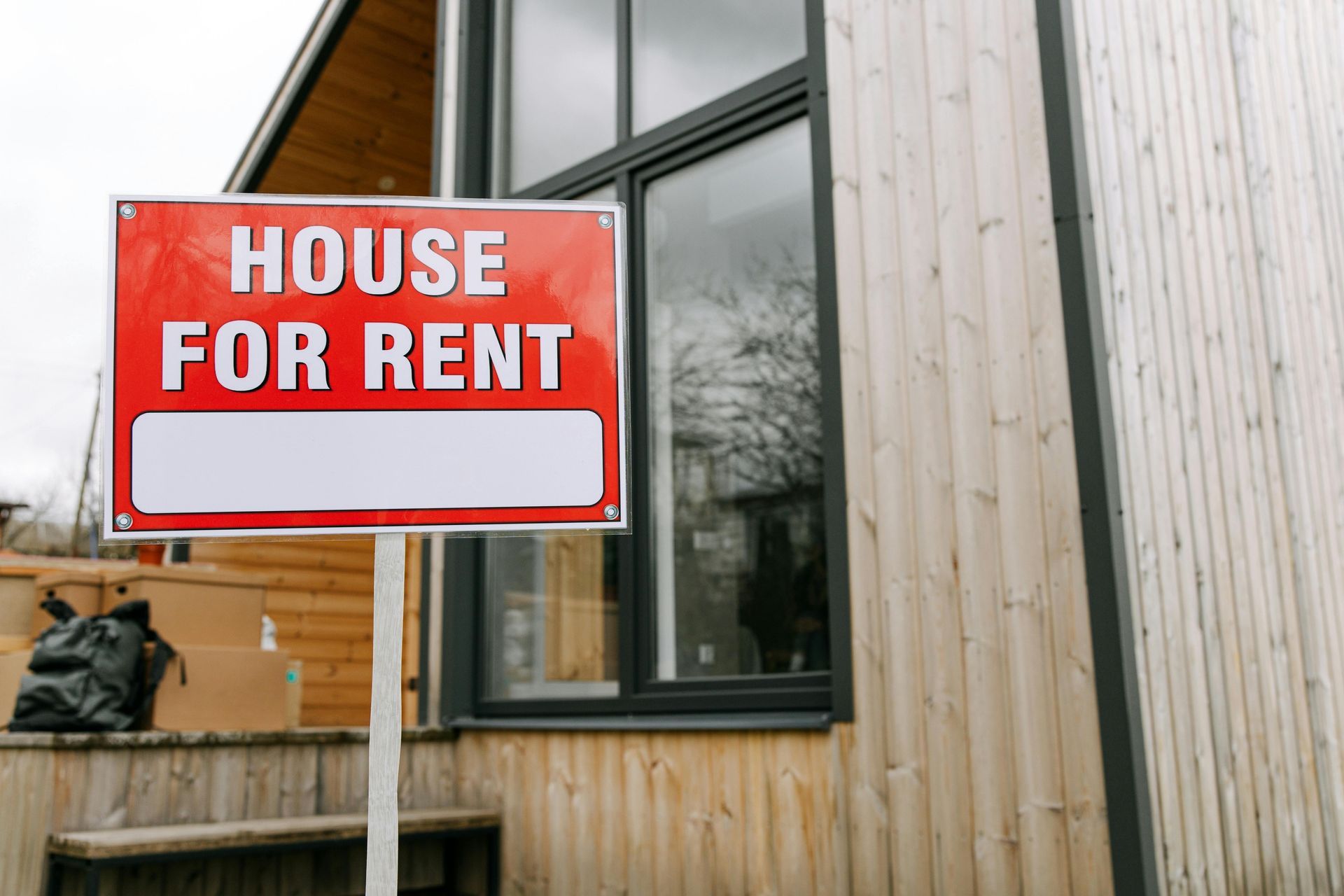First-Time Homebuyer Programs
A Guide to Programs and Resources

Buying your first home is a major milestone, a stepping stone to building wealth, creating stability, and establishing roots in a community. But navigating the complex world of mortgages, down payments, and closing costs can often feel overwhelming, especially for first-time buyers. Fortunately, a variety of programs and resources are available to help make the dream of homeownership a reality. From government-backed loans and down payment assistance to tax credits and educational resources, these programs can provide valuable support and financial incentives for those taking their first steps on the property ladder.
Understanding First-Time Homebuyer Programs
The path to homeownership can often feel like navigating a complex maze, especially for those embarking on this journey for the first time. Fortunately, a variety of programs are designed to make this dream more attainable, offering a helping hand and financial incentives to guide first-time homebuyers through the intricacies of the process.
These programs, offered by government agencies, non-profit organizations, and even private lenders, come in various forms, each tailored to address specific challenges and provide targeted support. One of the most significant hurdles for first-time homebuyers is often the daunting down payment, the upfront cash required to secure a mortgage. Many programs offer down payment assistance, allowing you to purchase a home with a smaller upfront investment than typically required by conventional loans. This can significantly reduce the financial burden and make it easier to save for that dream home, turning what might seem like an insurmountable obstacle into a manageable step.
Another common challenge is securing an affordable mortgage with manageable monthly payments. Some programs offer lower interest rates on mortgages, which can translate to substantial savings over the life of the loan. Lower interest rates not only make your monthly payments more manageable but also help you build equity faster, increasing your ownership stake in your home and accelerating your path to financial security. This can make a significant difference in your long-term financial well-being, freeing up funds for other goals, such as retirement savings or education expenses.
Closing costs, those often-overlooked expenses associated with finalizing a mortgage, can also pose a significant financial hurdle for first-time homebuyers. These costs, which can include appraisal fees, title insurance, and loan origination fees, can quickly add up, creating an unexpected financial burden. Fortunately, some programs offer assistance with closing costs, reducing the upfront expenses and making homeownership more attainable. This can be a crucial lifeline for those with limited savings, allowing them to allocate their funds towards the down payment and other essential expenses.
In addition to these financial incentives, certain programs offer tax credits, which can reduce your tax liability and provide further financial benefits. These tax credits can provide a welcome boost to your finances, freeing up funds for home improvements, furnishings, or other expenses associated with settling into your new home. They can also provide an ongoing incentive for homeownership, making it a more attractive and financially viable option.
Navigating the complexities of the home buying process can be daunting, especially for first-time buyers. Many programs recognize this challenge and offer educational resources and counseling services to guide you through the maze. These resources can provide valuable information about the home buying process, financial planning, budgeting, and responsible homeownership, empowering you to make informed decisions and embark on your homeownership journey with confidence. These programs often provide access to experienced housing counselors who can offer personalized guidance, answer your questions, and help you navigate the often-confusing world of mortgages and real estate transactions.
Government-Backed Loans
The federal government, recognizing the importance of homeownership in building strong communities and stable families, offers several loan programs specifically designed to make the dream of homeownership more attainable for first-time buyers. These government-backed loans provide a crucial bridge for those who may face challenges in securing conventional financing, offering more flexible qualification requirements and attractive loan terms.
The Federal Housing Administration (FHA) plays a key role in this effort through its FHA loan program. These loans are insured by the FHA, reducing the risk for lenders and allowing them to offer more lenient qualification criteria. FHA loans typically require lower credit scores and smaller down payments compared to conventional loans, making them a popular choice for first-time homebuyers who may not have pristine credit or a substantial savings nest egg. By reducing the barriers to entry, FHA loans empower more individuals and families to achieve their homeownership dreams, opening doors that might otherwise be closed.
For those who have served our country, the Department of Veterans Affairs (VA) offers a valuable resource in the form of VA loans. These loans are guaranteed by the VA, providing peace of mind to lenders and enabling them to offer highly favorable terms and benefits to eligible veterans, service members, and surviving spouses. VA loans often require no down payment, eliminating one of the most significant hurdles to homeownership, and they typically come with lower interest rates compared to conventional loans, reducing the overall cost of homeownership and making it more affordable for those who have dedicated their lives to serving our nation. These loans are a testament to our nation's gratitude for the sacrifices made by our veterans and their families.
For those seeking a more rural lifestyle, the United States Department of Agriculture (USDA) offers loan programs designed to help individuals and families purchase homes in designated rural areas. These loans often require no down payment and have flexible credit score requirements, making them an attractive option for those seeking to escape the hustle and bustle of city life and establish roots in a more tranquil and affordable setting. USDA loans promote rural development and support homeownership in communities that might otherwise lack access to affordable financing, contributing to the vibrancy and economic growth of rural areas.
These government-backed loan programs play a crucial role in expanding homeownership opportunities, making the dream of owning a home a reality for a wider range of individuals and families. By reducing barriers to entry, providing financial incentives, and supporting those who have served our country or seek to revitalize rural communities, these programs contribute to a stronger and more inclusive housing market, fostering economic stability and community development.
State and Local Programs
While federal programs provide a broad foundation for first-time homebuyer assistance, many states and local governments recognize the unique needs of their communities and offer their own specialized programs. These programs, tailored to the specific challenges and demographics of each region, provide additional layers of support and financial incentives for aspiring homeowners.
State and local programs often focus on addressing affordability challenges, recognizing that the dream of homeownership can be particularly elusive in high-cost areas or for those with limited incomes. These programs may offer down payment assistance grants, closing cost assistance, or even tax credits to reduce the financial burden of homeownership. Some programs may also target specific populations, such as low-income families, teachers, first responders, or those seeking to purchase homes in revitalization areas.
To uncover the wealth of programs available in your area, it's essential to conduct thorough research and tap into local resources. Contact your state housing finance agency or local government offices to inquire about specific programs and their eligibility requirements. You can also consult with a mortgage lender or housing counselor who specializes in first-time homebuyer programs. These professionals can provide valuable insights into the programs available in your area and guide you through the application process.
Non-Profit Organizations: Guiding Lights on the Path to Homeownership
In addition to government agencies and private lenders, a network of non-profit organizations is dedicated to supporting first-time homebuyers on their journey to homeownership. These organizations, often driven by a mission to promote affordable housing and community development, offer a wealth of resources, guidance, and support to those navigating the complexities of the real estate market.
Non-profit organizations can provide valuable information about the home buying process, financial planning, budgeting, and responsible homeownership. They often offer counseling services, educational workshops, and online resources to empower first-time homebuyers with the knowledge and tools they need to make informed decisions. These organizations can also connect you with other resources in your community, such as down payment assistance programs, affordable housing initiatives, and legal aid services.
Making the Most of First-Time Homebuyer Programs
Embarking on the journey to homeownership can be both exciting and daunting, especially for first-time buyers navigating the complexities of mortgages, down payments, and closing costs. Fortunately, a variety of programs and resources are available to help smooth the path and make the dream of owning a home a reality. However, maximizing the benefits of these programs requires proactive planning and informed decision-making.
Start your homeownership journey early by researching and exploring the various programs available well in advance of your planned purchase. This allows you to understand the specific requirements of each program, gather the necessary documentation, and prepare your finances accordingly. Think of it as mapping out your route before embarking on a road trip, ensuring you have the necessary tools and resources to reach your destination smoothly. This proactive approach can help you avoid delays, surprises, and potential disappointments along the way.
Your credit score, a numerical representation of your creditworthiness, plays a crucial role in your ability to qualify for a mortgage and secure favorable interest rates. It's a reflection of your financial responsibility and a key factor that lenders consider when assessing your loan application. Before you begin your home search, check your credit report and address any errors or issues that could negatively impact your score. Consider it a financial health checkup, ensuring your credit profile is in top shape to secure the best possible loan terms and increase your chances of mortgage approval.
Even with down payment assistance programs, you'll likely need to contribute some funds towards your down payment. Start saving early and explore options like automatic savings plans or dedicated savings accounts to reach your down payment goal faster. Think of it as building a solid foundation for your homeownership journey, demonstrating your commitment to the investment and increasing your chances of securing a mortgage. The larger your down payment, the lower your loan-to-value ratio, which can translate to lower interest rates and reduced monthly payments.
Getting pre-approved for a mortgage is another crucial step in the home buying process. Pre-approval gives you a clear picture of how much you can afford to borrow, allowing you to set a realistic budget and focus your home search on properties within your financial reach. It also strengthens your position when making an offer on a property, signaling to sellers that you are a serious buyer with the financial capacity to complete the purchase. Pre-approval involves providing a lender with your financial information, such as income, assets, and debts, and they will assess your creditworthiness and provide you with a conditional commitment for a loan amount.
Attending a homebuyer education workshop can provide invaluable insights and guidance as you navigate the complexities of homeownership. These workshops, often offered by non-profit organizations or government agencies, offer comprehensive information about the home buying process, financial planning, budgeting, and responsible homeownership. They can help you understand the legal and financial aspects of purchasing a home, prepare for the responsibilities of homeownership, and make informed decisions that align with your long-term goals. These workshops can also be a valuable opportunity to connect with other first-time homebuyers, share experiences, and learn from each other's journeys.
Finally, consider consulting with a housing counselor, a professional who can provide personalized guidance and support throughout your home buying journey. A housing counselor can help you navigate the complexities of first-time homebuyer programs, understand your financial options, and make informed decisions that align with your individual needs and circumstances. They can also connect you with resources and support services in your community, such as down payment assistance programs, affordable housing initiatives, and legal aid services. A housing counselor can be a valuable ally, providing objective advice, answering your questions, and advocating for your best interests throughout the home buying process.
Achieving the Dream of Homeownership
Purchasing your first home is a significant milestone, a journey filled with excitement, challenges, and ultimately, the reward of owning a place to call your own. First-time homebuyer programs offer a valuable lifeline, providing financial assistance, educational resources, and support to help you navigate the complexities of the home buying process. By understanding the various programs available, preparing your finances diligently, and seeking expert guidance, you can confidently embark on your homeownership journey and unlock the door to your dreams.
Remember, the path to homeownership may seem daunting at first, but with careful planning, informed decision-making, and the right support system, you can achieve your goal of owning a home. Take advantage of the resources available, educate yourself about the process, and don't be afraid to ask for help along the way. The rewards of homeownership are well worth the effort, providing a sense of stability, security, and pride that will last a lifetime.




